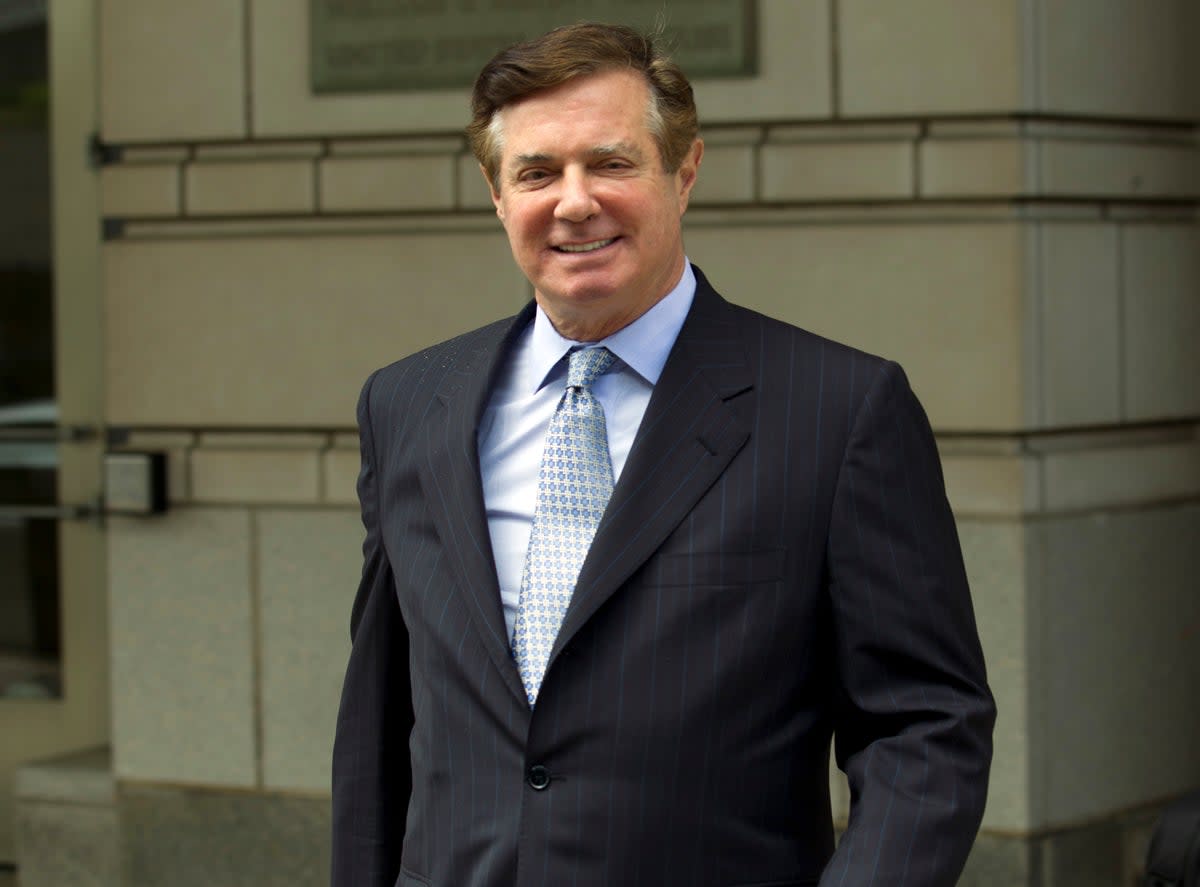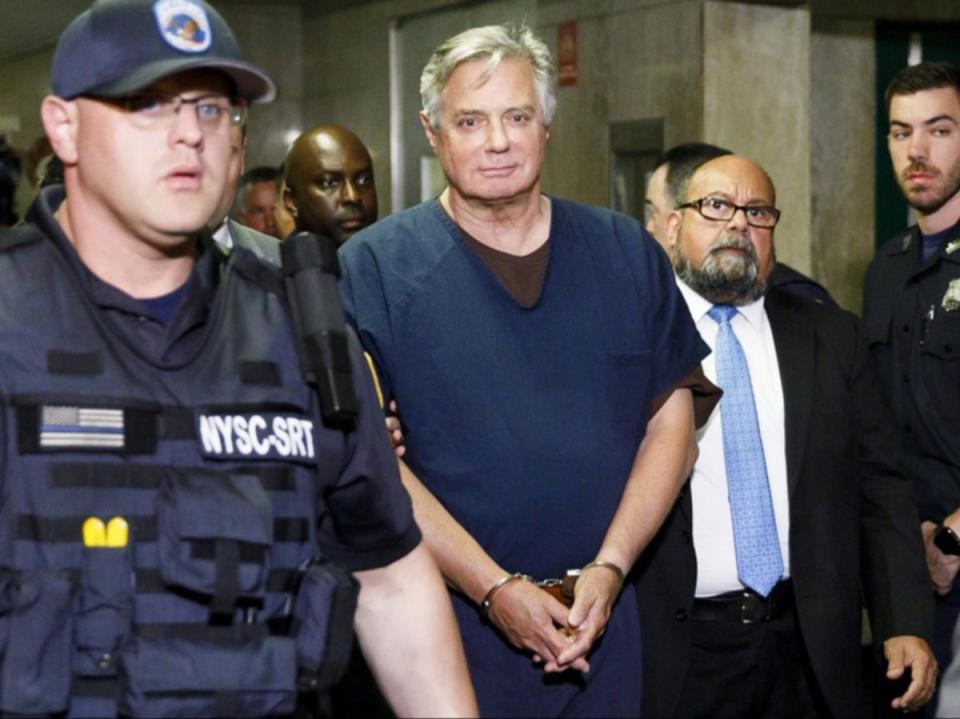Paul Manafort leaves Republican convention role after controversy

- Oops!Something went wrong.Please try again later.
- Oops!Something went wrong.Please try again later.
- Oops!Something went wrong.Please try again later.
Paul Manafort has left his unpaid role advising party officials at the Republican convention.
The veteran political consultant, 75, had recently returned to offer his expertise to the convention, according toThe New York Times, and was in Milwaukee, Wisconsin last week for planning meetings. A Washington Post story also reported on Friday that he was involved in work connected to foreign officials and businesses.
His time in the Republican convention role was short-lived.
“As a longtime, staunch supporter of President Trump and given my nearly 50 years experience in managing presidential conventions, I was offering my advice and suggestions to the Trump campaign on the upcoming convention in a volunteer capacity,” Manafort told The New York Times in a statement provided by the Trump campaign.
“However, it is clear that the media wants to use me as a distraction to try and harm President Trump and his campaign by recycling old news,” he added.
“And I won’t let the media do that. So, I will stick to the sidelines and support President Trump every other way I can.”

Manafort helped elect and re-elect numerous presidents during his decades-long career in politics, from Richard Nixon and George HW Bush to Donald Trump.
But he has also served as a prolific lobbyist for foreign politicians including Angolan rebel leader Jonas Savimbi, Russian oligarch Oleg Deripaska, and Viktor Yanukovych, the pro-Russian former president of Ukraine.
In October 2017, he was indicted on multiple charges related to the concealment of millions of dollars he had made from lobbying for pro-Russian politicians, including the former Ukrainian president Viktor Yanukovych in 2014.
Additional charges of obstruction of justice and witness tampering were added in June 2018, which were alleged to have occurred while he was under house arrest.
In August 2018, Manafort went on trial in Virginia and was ultimately convicted of eight charges of tax and bank fraud.

Another trial in Washington DC saw him plead guilty to two charges of conspiracy to defraud the US and witness tampering in a plea deal with prosecutors. That was later voided when special counsel Robert Mueller reported that he had repeatedly lied to federal agents.
In March 2019, Manafort was sentenced to 47 months in prison, with a further 43 months tacked on six days later.
A bipartisan Senate committee subsequently branded him a “grave counterintelligence threat” and a potential channel for covert Russian influence.
Manafort, a Trump adviser who was sentenced to prison for crimes unrelated to the campaign, was later pardoned by Trump in the dying days of his presidency, along with Michael Flynn, Roger Stone, Steve Bannon and Elliott Broidy.
After being pardoned, Manafort released a book called Political Prisoner in which he denied any wrongdoing related to Ukraine and Russia and defended his former boss.

